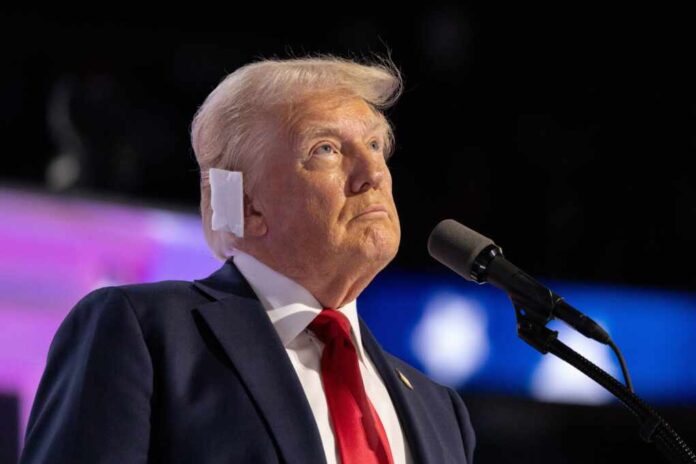
Trump administration plans to slash funding for the Millennium Challenge Corporation, potentially handing China a major advantage in the race for influence across Africa.
At a Glance
- The Trump administration is considering significant cuts to the Millennium Challenge Corporation (MCC), which has invested billions in African infrastructure
- These cuts are part of Elon Musk’s Department of Government Efficiency’s broader cost-cutting initiatives
- The MCC was established to provide US investment in developing countries that uphold democratic values and good governance
- Reducing MCC operations could create a power vacuum that China is positioned to fill in Africa
- This potential shift comes at a time when strategic influence in Africa is increasingly contested
Proposed Cuts to US Agency Supporting African Development
A memo obtained by AFP reveals that the Trump administration is preparing to significantly reduce programs and staff at the Millennium Challenge Corporation, a US agency that has channeled billions of dollars into infrastructure development across Africa. The MCC, established in 2004, provides substantial investments to developing nations that demonstrate commitments to democracy, good governance, and economic freedom. These investments have been critical in expanding American influence while supporting economic growth in recipient countries.
The proposed cuts appear to be part of a broader efficiency initiative led by Elon Musk’s Department of Government Efficiency (DOGE), which is tasked with identifying areas for federal spending reduction. The MCC has become a target despite its role as a counterbalance to China’s expanding economic presence in Africa through its Belt and Road Initiative, which has poured vast resources into infrastructure projects across the continent over the past decade.
— Sentinel (@SentinelTeamHQ) April 22, 2025
Strategic Implications for US-China Competition
The potential scaling back of the MCC comes at a pivotal moment in US-China competition for influence in developing regions. China has invested heavily in African infrastructure through state-backed companies and loans, often with fewer conditions regarding governance or human rights than Western-backed initiatives. The MCC has served as America’s primary tool for demonstrating an alternative model of development partnership that emphasizes accountability, transparency, and democratic values.
Analysts warn that reducing American investment in African infrastructure could create a vacuum that China stands ready to fill. Unlike traditional foreign aid, the MCC operates through competitive grants that reward countries meeting specific criteria for governance and economic policy. This approach has been highlighted as an effective method for encouraging reforms while delivering tangible development benefits, making the proposed cuts potentially damaging to both African development and America’s strategic position.
New York Times
The Editorial Board
Trump’s Tariff Pause Is Less Than Meets the Eye
April 12, 2025
📷
By The Editorial BoardThe editorial board is a group of opinion journalists whose views are informed by expertise, research, debate and certain longstanding values. It is…
— Jim Michie (@JimMichie) April 13, 2025
Impact on African Development and American Influence
The MCC has completed major projects across Africa including roads, power systems, water infrastructure, and agricultural initiatives. These investments have helped address critical infrastructure gaps in developing economies while providing an alternative to Chinese financing, which critics argue often creates debt dependence and grants China leverage over recipient nations. By cutting MCC funding, the US risks not only diminishing its visible presence in these regions but also reducing its ability to encourage democratic governance through conditional aid.
The timing of these proposed cuts coincides with increased attention on Africa from global powers. Russia has expanded its influence through security partnerships, while China continues to deepen economic ties across the continent. The European Union has also announced increased investment initiatives targeting African development. Against this backdrop, a reduced American commitment through the MCC could signal a strategic retreat at a time when competition for influence in Africa is intensifying.
African nations that have benefited from MCC investments may now face difficult choices if American funding decreases. Some countries have structured their development plans around anticipated MCC grants, and a sudden reduction could force them to seek alternative financing sources, potentially including less transparent arrangements with China that might come with different political and economic conditions.
Efficiency Versus Strategic Investment
The administration’s focus on government efficiency through DOGE has identified numerous agencies for potential budget reductions. However, critics argue that cutting the MCC represents a false economy, as relatively modest investments yield significant diplomatic and strategic returns. The MCC operates with lower overhead than many other foreign assistance programs and maintains stringent accountability measures to ensure funds achieve intended outcomes.
Congressional reactions to the proposed cuts remain uncertain. The MCC has historically enjoyed bipartisan support as an effective tool for promoting American values and interests abroad. Several Republican lawmakers have previously defended the agency’s mission as consistent with both America’s strategic interests and its moral leadership. As the administration moves forward with these proposals, congressional oversight may play a crucial role in determining the future of America’s development partnerships in Africa.

























